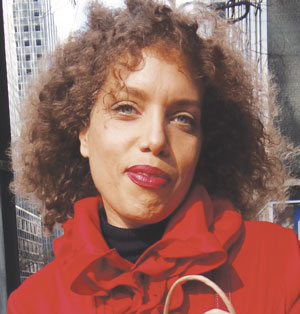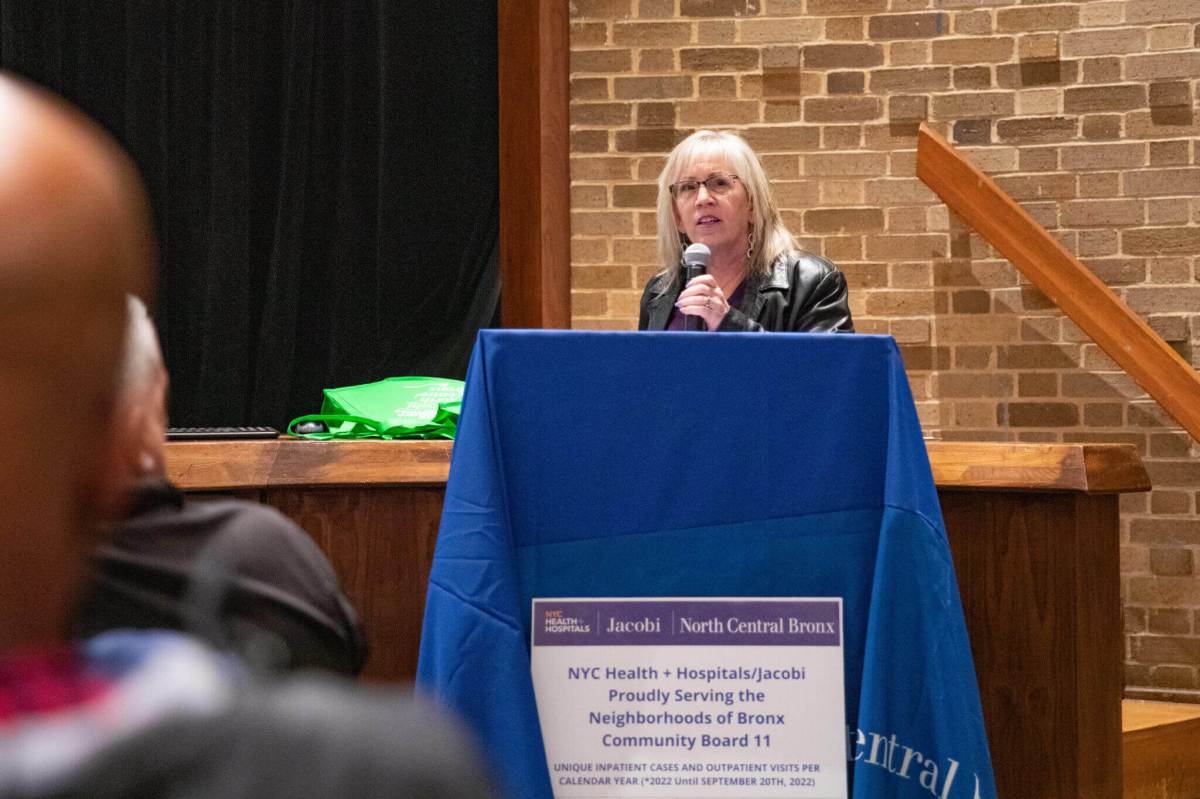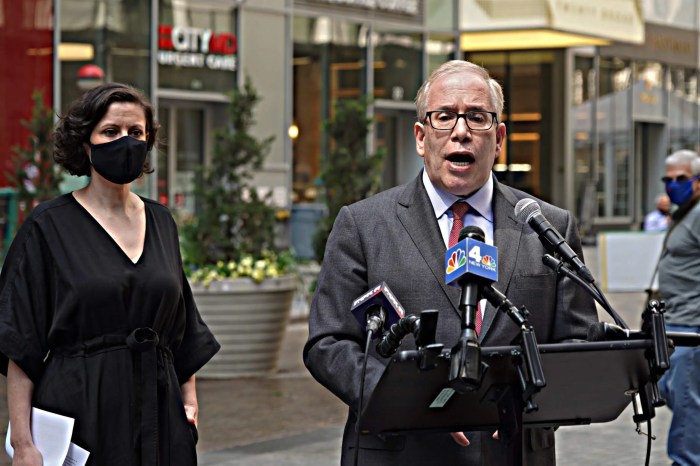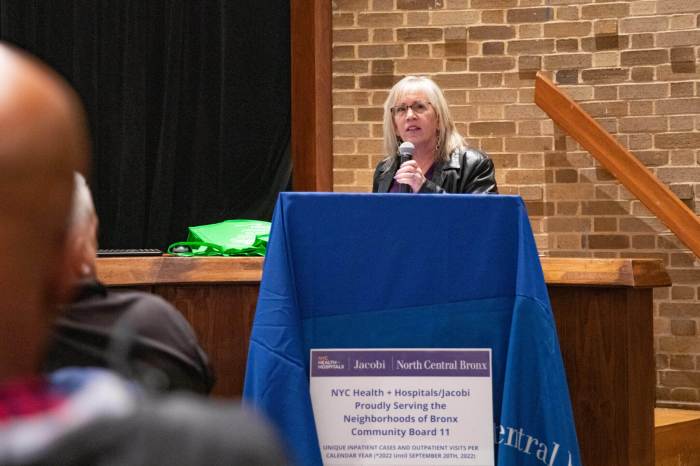 [/media-credit]
[/media-credit]
Environmental advocates and New York City elected officials say the relatively new drilling method known as fracking presents potentially devastating risks to water resources, air quality and the quality of life, especially in the state’s Southern Tier of counties bordering Pennsylvania, where the gas-bearing Marcellus Shale formation lies more than a mile below the surface.
Indeed, the state Department of Environmental Conservation last year took the Catskill/Delaware watershed, which supplies drinking water to about 10 million New York City and Westchester residents, out of consideration for fracking.
Nevertheless the proposed rules call for only a 1,000-foot buffer zone between fracking operations and watershed infrastructure.
Borough President Scott Stringer told the Nov. 30 D.E.C. hearing that the 1,000-foot buffer would not protect water supplies from potential damage.
“I am deeply concerned that this inadequate buffer zone could compromise the purity of the city’s unfiltered drinking water and gravely damage our water delivery infrastructure,” Stringer said.
The fracking process involves injecting millions of gallons of water laced with toxic chemicals and sand under high pressure to fracture shale formations to release methane gas. The process calls for drilling down between 5,000 and 8,000 feet to the Marcellus Shale, then drilling horizontally for several thousand feet into the formation to be fracked.
The city’s Department of Environmental Protection submitted testimony that the 1,000-foot buffer zone would not mitigate the risks of methane gas intrusion into water tunnels and shafts.
Albert Appleton, former commissioner of the city D.E.P., called for a minimum buffer zone of one mile. Going even farther, environmental consultants Hazen and Sawyer have called for a seven-mile buffer zone around the city’s water deliver infrastructure.
Assemblymember Richard Gottfried, chairperson of the Assembly Health Committee, said fracking would imperil water supply and the environment.
“It is also clear that drilling operations and associated major truck traffic would have serious harmful environmental impacts,” Gottfried said.
“If hydrofracking is not safe for the New York City watershed area — and it is not — then it is also not safe for any area where people drink groundwater,” Gottfried said.
Residents of Dimock, Pennsylvania, where fracking has been conducted for nearly three years, have discovered their well water has been contaminated with gas.
But oil and gas industry advocates contend that the U.S. could become energy self-sufficient and improve air quality with relatively clean-burning natural gas. The reserves of methane gas in various shale formations in the U.S. would rival Saudi Arabia’s oil reserves, according to gas industry sources.
Supporters also declare that gas drilling would pump millions of dollars into the state’s economy in taxes, employment and land leases to property owners.
The Independent Oil and Gas Association of New York told the D.E.C. Nov. 30 hearing that the proposed rules were too onerous and would limit opportunity for Upstate communities to share in the new drilling’s economic benefits.
“Without moderation, these well-intentioned but unnecessarily burdensome requirements will prove to be a regulatory monument to lost opportunity,” said Brad Gill, the association’s executive director.
But environmental advocates say the proposed rules were really drafted by the gas industry, and that D.E.C. lacks the staff to enforce them.
The Delaware River Basin Commission, composed of the governors of New York, New Jersey, Pennsylvania and Delaware, cancelled a vote on fracking in the river basin scheduled for Nov. 21 after Jack Markell, Delaware’s governor, said he would vote no.


















